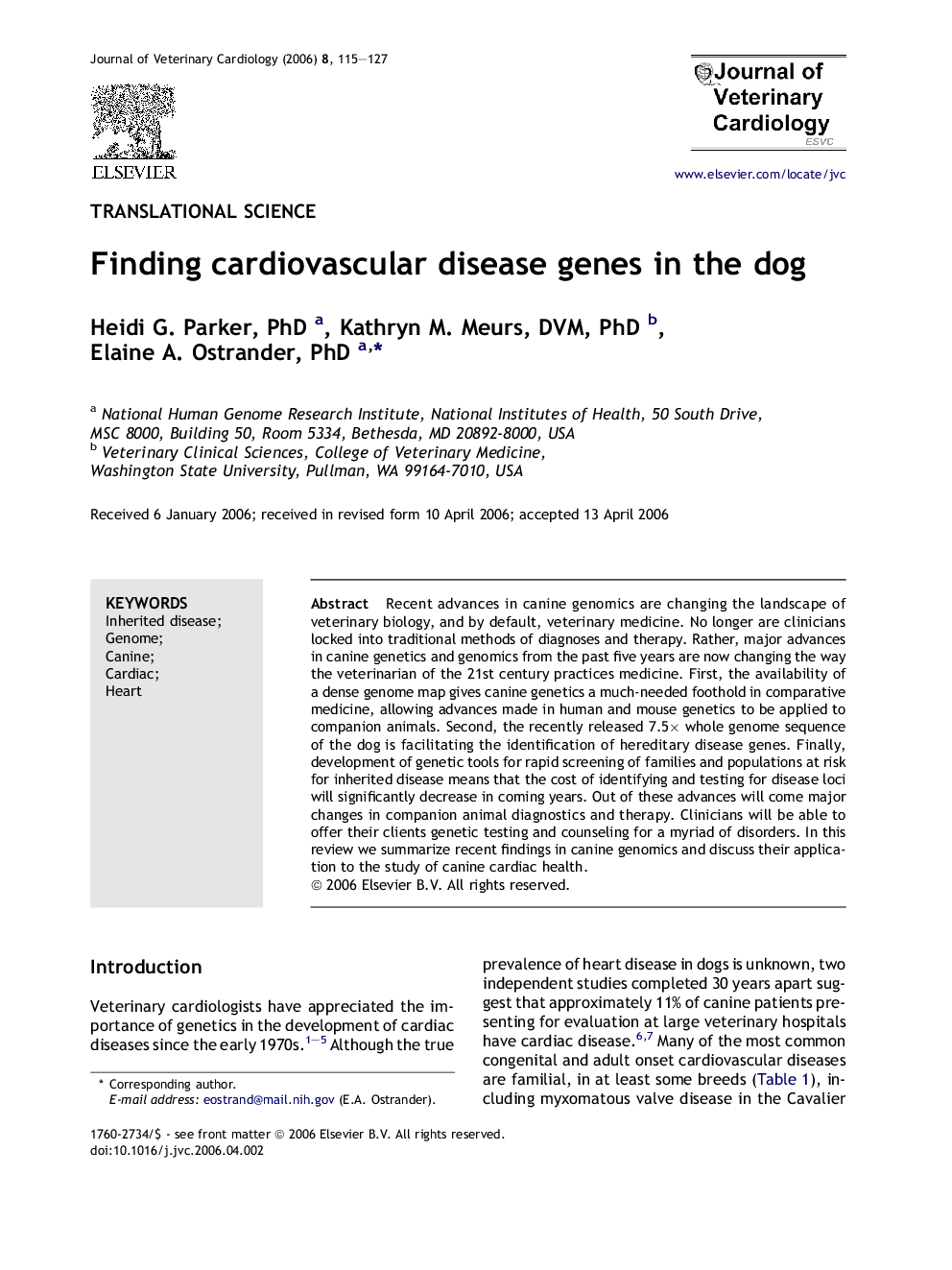| Article ID | Journal | Published Year | Pages | File Type |
|---|---|---|---|---|
| 2400377 | Journal of Veterinary Cardiology | 2006 | 13 Pages |
Recent advances in canine genomics are changing the landscape of veterinary biology, and by default, veterinary medicine. No longer are clinicians locked into traditional methods of diagnoses and therapy. Rather, major advances in canine genetics and genomics from the past five years are now changing the way the veterinarian of the 21st century practices medicine. First, the availability of a dense genome map gives canine genetics a much-needed foothold in comparative medicine, allowing advances made in human and mouse genetics to be applied to companion animals. Second, the recently released 7.5× whole genome sequence of the dog is facilitating the identification of hereditary disease genes. Finally, development of genetic tools for rapid screening of families and populations at risk for inherited disease means that the cost of identifying and testing for disease loci will significantly decrease in coming years. Out of these advances will come major changes in companion animal diagnostics and therapy. Clinicians will be able to offer their clients genetic testing and counseling for a myriad of disorders. In this review we summarize recent findings in canine genomics and discuss their application to the study of canine cardiac health.
